WWF-Philippines Launches the Serve our Planet Training Series for the Food Service Industry
May 2018
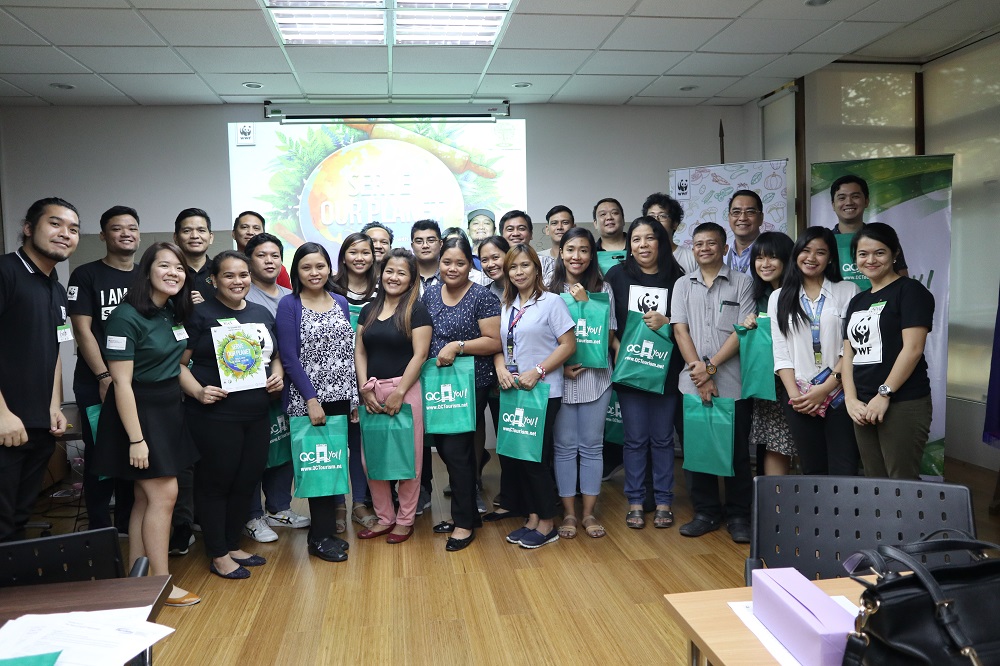
The participants of the Serve Our Planet: Ensuring Safe Food and Proper Food Handling training are representatives of restaurants, invited guests, and government employees from one of The Sustainable Diner’s partner cities, Quezon City. © Gabriel Villalon / WWF-Philippines
On May 8, 2018, the World Wide Fund for Nature (WWF) Philippines’ The Sustainable Diner: A Key Ingredient for Sustainable Tourism project launched Serve Our Planet, a series of capacity-building trainings for members of the foodservice industry. The aim of the training series is to equip them with the skills and knowledge needed in order to incorporate sustainability practices in day-to-day restaurant operations. The first training, Ensuring Safe Food and Proper Food Handling, was held in the Quezon City Public Library, in partnership with the Quezon City Tourism Department, the Quezon City Environmental Protection and Waste Management Department (EPWMD), the Quezon City Health Department, the Philippine Center for Environmental Protection and Sustainable Development, Inc. (PCEPSDI), and the Hotel & Restaurant Association of the Philippines (HRAP).
The training was based on ServSafe, a food and beverage safety training and certification program. ServSafe has integrated the latest FDA Code and extensive food sanitation training research and experience into its manual to provide participants comprehensive training guidelines.
Melody Melo-Rijk, WWF’s Project Manager for Sustainable Consumption and Production in the Philippines, opened the training by welcoming the participants and by giving a short introduction on The Sustainable Diner project, as well as the Serve Our Planet training series and its objectives. This was followed by a talk on sustainable tourism and how this concept is being practiced in Quezon City through its “QC WELCOMES You” campaign, delivered by Divina Gracia Pascua, head of the Quezon City Tourism Department.
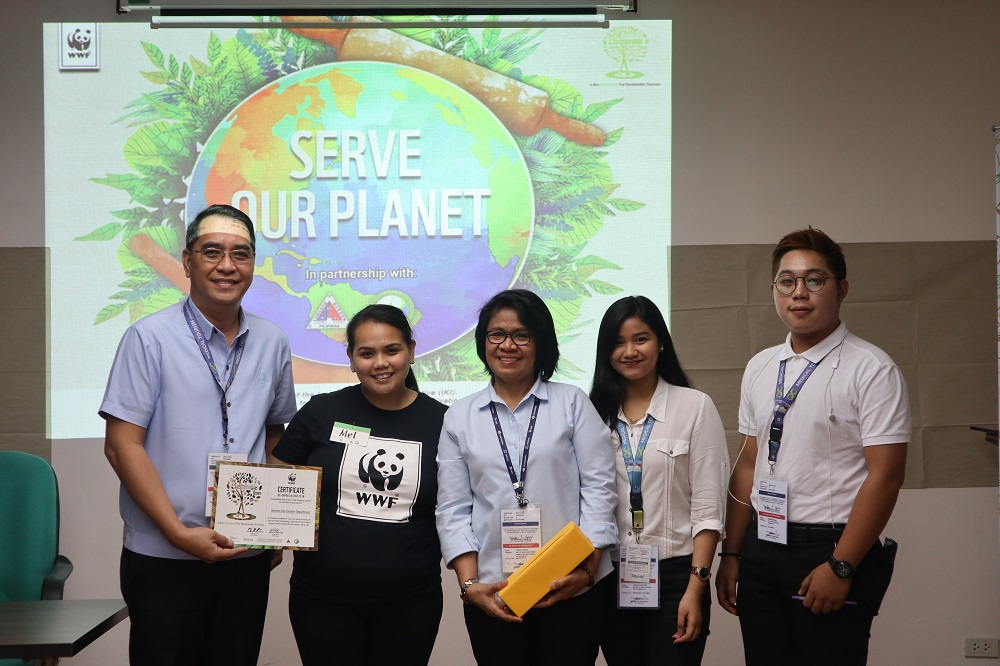
WWF Project Manager for Sustainable Consumption and Productio in the Philippines, Melody Melo-Rijk with Divina Gracia Pascua, Head of Quezon City Tourism Department, and representatives from the Quezon City Tourism Department pose for a photo-op with their certificate of appreciation. © Jesper Nepomuceno / WWF-Philippines
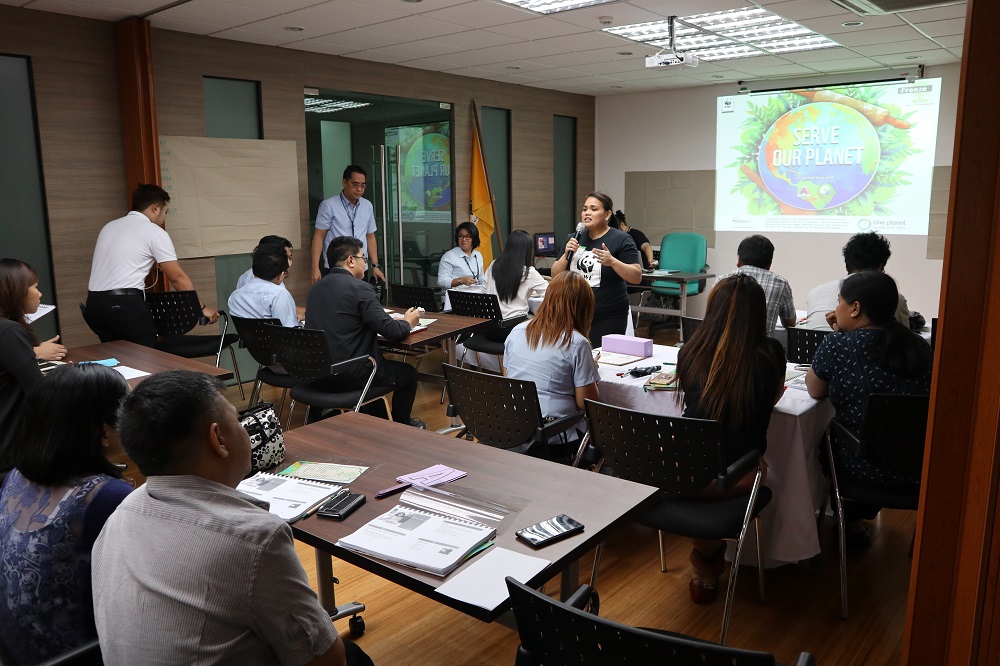
Melody Melo-Rijk conducts the training based on the ServSafe Certification Program. © Jesper Nepomuceno / WWF-Philippines
Jansteen Manuel, the Quezon City Environmental Protection and Waste Management Department’s Environmental Management Specialist for the Pollution Control Division, shared with the participants a story on the link between environmental protection and economic development, citing human choices as a core point of changemaking. The morning session ended with a discussion on Quezon City’s sanitation requirements for restaurants, conducted by Joyce Oliveros, Sanitation Inspector from the Quezon City Health Department. A certified ServSafe Food Protection Manager, Melo-Rijk discussed the different modules including Providing Safe Food, Forms of Contamination, The Safe Food Handler, The Flow of Food, and an Introduction to Food Safety Management.
Individual quizzes and interactive group quizzes were given in between sessions to ensure that the participants were able to grasp the concepts presented in each topic. The training ended with an awarding of prizes for the top three groups with the most points, as well as the presentation of the Serve Our Planet badges, which each restaurant will earn for every training where they send a representative to attend.
Through the whole-day training, the participants were equipped with new knowledge on proper food handling, which they can use for their day-to-day operations. This also serves as preparation should they wish to take their own ServSafe certification exams. Here’s to more integration of sustainable dining principles in our local dining industry!
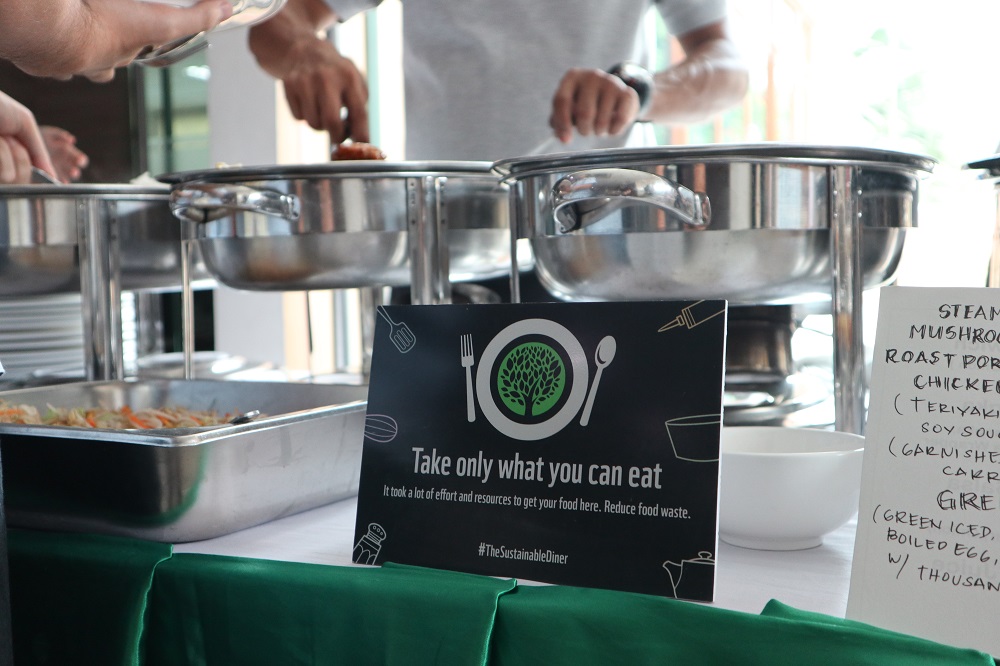
One of The Sustainable Diner’s new tabletop reminder cards. The goal of each card is to remind diners on what they should do and keep in mind in order to become #TheSustainableDiner. © Gabriel Villalon / WWF-Philippines
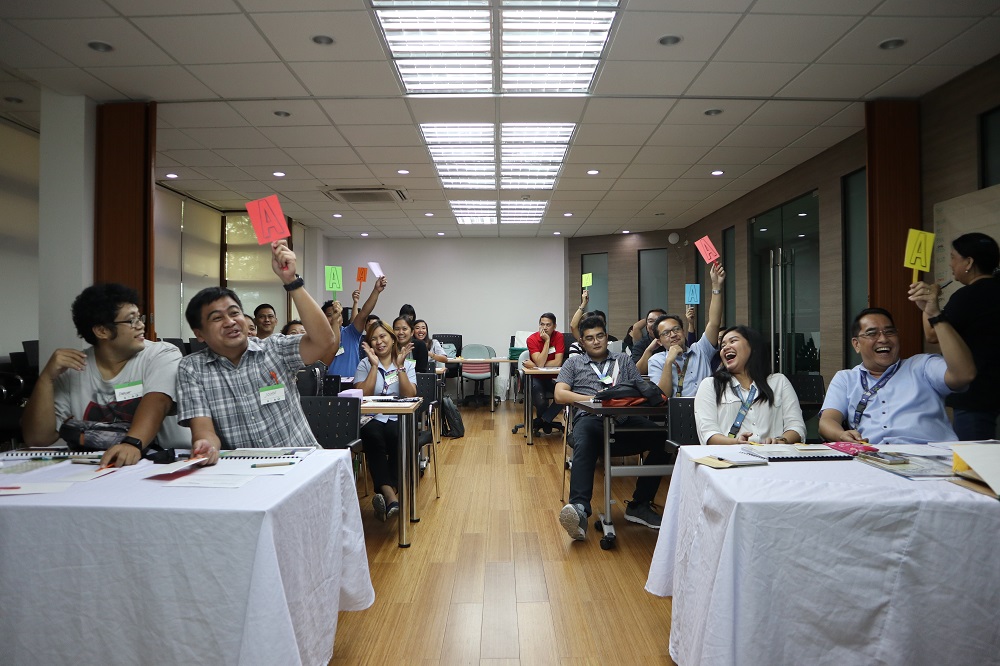
The participants raising their answer cards during one of the interactive group quizzes in between sessions. © Gabriel Villalon / WWF-Philippines
The Sustainable Diner project, under WWF-Philippines’ Sustainable Consumption and Production, is part of the International Climate Initiative (IKI). The Federal Ministry for the Environment, Nature Conservation, Building and Nuclear Safety (BMUB) supports this initiative on the basis of a decision adopted by the German Bundestag.
